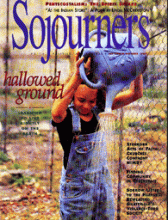The dirt road through the department of Baja Verapaz first winds through lush coffee country and then becomes a torturous mountain pass before descending into the district (and also town) of Rabinal, the not-so-lush and in fact desperately poor home to the Maya-Achí, one of the smallest of Guatemala's 23 different ethnic groups.
Through the generations, the Achí people have survived but never prospered. The mountain passes were never fully penetrated by government services and commerce, perpetuating the deep poverty of the Achís but allowing them to preserve their culture and language. They survived the conquest and modernization, when millions of indigenous across the Americas did not.
Four hundred and fifty years ago, Dominican priests made it through these same mountain passes, promising to conquer the Mayas with Catholic evangelism if the Spanish conquistadores would keep their swords sheathed. Fray Bartolóme de las Casas led the contingent of Dominican priests in settling the region, calling it las verapaces ("true peace").
In my first visit to Rabinal in 1994, the immense church built by de las Casas sagged and lay in disrepair. The mood in the marketplace was somber and the sounds normally associated with Guatemalan markets-squawking chickens, the raised voices of women praising their vegetables and offering specials-were absent.
Read the Full Article

